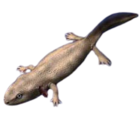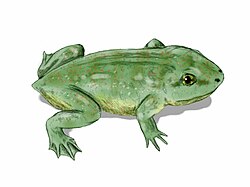| Binomial name and author | Common name |
|---|
|
| Caecilia abitaguae Dunn, 1942 | Abitagua caecilian | |
| Caecilia albiventris Daudin, 1803 | Whitebelly caecilian |
| Caecilia antioquiaensis Taylor, 1968 | Antioquia caecilian |
| Caecilia aprix Fernández-Roldán and Rueda-Almonacid, 2022 | |
| Caecilia armata Dunn, 1942 | Armored caecilian |
| Caecilia atelolepis Fernández-Roldán, Lynch, and Medina-Rangel, 2023 | |
| Caecilia attenuata Taylor, 1968 | Santa Rosa caecilian |
| Caecilia bokermanni Taylor, 1968 | Bokermann's caecilian |
| Caecilia caribea Dunn, 1942 | Pensilvania caecilian |
| Caecilia corpulenta Taylor, 1968 | Solid caecilian |
| Caecilia crassisquama Taylor, 1968 | Normandia caecilian |
| Caecilia degenerata Dunn, 1942 | Garagoa caecilian |
| Caecilia disossea Taylor, 1968 | Rio Santiago caecilian |
| Caecilia dunni Hershkovitz, 1938 | Dunn's caecilian |
| Caecilia epicrionopsoides Fernández-Roldán, Lynch, and Medina-Rangel, 2023 | |
| Caecilia flavopunctata Roze & Solano, 1963 | Yellow-spotted caecilian |
| Caecilia goweri Fernández-Roldán and Lynch, 2021 | |
| Caecilia gracilis Shaw, 1802 | Wormlike caecilia, slender caecilian, Surinam caecilian |
| Caecilia guntheri Dunn, 1942 | Gunther's caecilian |
| Caecilia inca Taylor, 1973 | Fundo Sinchona caecilian |
| Caecilia isthmica Cope, 1877 | |
| Caecilia leucocephala Taylor, 1968 | White-headed caecilian |
| Caecilia macrodonta Fernández-Roldán, Lynch, and Medina-Rangel, 2023 | |
| Caecilia marcusi Wake, 1985 | Villa Tunari caecilian |
| Caecilia mertensi Taylor, 1973 | Mertens' caecilian |
| Caecilia museugoeldi Maciel and Hoogmoed, 2018 | |
| Caecilia nigricans Boulenger, 1902 | Rio Lita caecilian |
| Caecilia occidentalis Taylor, 1968 | Cauca caecilian |
| Caecilia orientalis Taylor, 1968 | La Bonita caecilian |
| Caecilia pachynema Günther, 1859 | Intac caecilian |
| Caecilia perdita Taylor, 1968 | Andagoya caecilian |
| Caecilia pressula Taylor, 1968 | Marudi Mountains caecilian |
| Caecilia pulchraserrana Acosta-Galvis, 2019 | |
| Caecilia subdermalis Taylor, 1968 | Moscopan caecilian |
| Caecilia subnigricans Dunn, 1942 | Magdalena Valley caecilian |
| Caecilia subterminalis Taylor, 1968 | Taylor's Ecuador caecilian |
| Caecilia tentaculata Linnaeus, 1758 | Bearded caecilia, white-bellied caecilian, Linnaeus' caecilian |
| Caecilia tenuissima Taylor, 1973 | Guayaquil caecilian |
| Caecilia thompsoni Boulenger, 1902 | Thompson's caecilian |
| Caecilia volcani Taylor, 1969 | Cocle caecilian |
| Caecilia wilkinsoni Fernández-Roldán & Lynch, 2023 | |
|




